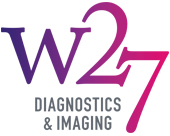When you are having a radiology test it can be reassuring to know that the radiologist carrying out the test has encountered the same or similar problems to yours or has particular expertise in this area.
This is why many people opting for private radiology testing prefer to see a specialist. Specialist radiologists focus on a particular type area of the body or type of testing.
They have studied extensively and had firsthand experience of both common conditions and also, in many cases, rare problems that are harder to diagnose and can easily be overlooked.
What Is A Radiologist?
All radiologists are experts in diagnostic imaging, using X-rays (including CT scans and fluoroscopy), ultrasound, MRI or nuclear medicine (using radioactive substances).
They use different imaging techniques to diagnose and in some cases treat illnesses or injury. Radiologists may also treat certain diseases using radiation (radiation oncology and nuclear medicine) or minimally-invasive, image-guided surgery.
What Is A Specialist Radiologist?
As with surgery, where surgeons may choose to become a specialist in a particular area of the body, so certain radiologists choose to specialise in diagnosing particular types of problems or injuries.
Here at W27, for example, we specialise in musculoskeletal radiology, which is the diagnosis of disease and injury affecting the muscles and skeleton. We use a range of diagnostic techniques, including X-ray, ultrasound, MRI and CT scans.
Many of our patients come to us with sports injuries and we are able to provide a detailed diagnosis and comprehensive advice to help them to get back on their feet again within the shortest possible time and to recover well.
Dr Subhasis Basu specialises in MRI arthrograms to diagnose joint problems and has developed a range of specialist image-guided treatments that complement conventional surgery, for example ultrasound-guided injections for tendons, joints and soft tissues. He treats frozen shoulder using an innovative approach called hydrodilatations and has devised a novel technique for the release of trigger finger.
Other radiologists specialise in different areas such as: cardiovascular; chest; head and neck; gastrointestinal; genitourinary and paediatric.
How To Choose The Right Option For You
If you are looking for a specialist radiologist, Private Healthcare UK has a list of private consultant radiologists and their specialisms.
The Royal College of Radiologists website also has links to information and websites that detail radiologists.
It can be helpful to look at the biography of the radiologist you are considering to see what areas they cover and also to examine independent patient reviews and testimonials on sites such as Doctify.
Of course, if you are seeing a non-specialist, there is no reason to worry as all radiologists are highly trained and accomplished in their field of radiology. The specialism just adds a layer of expertise from diagnosing many similar cases.
To discuss your symptoms, please contact our team who can arrange the right diagnostic test for you so you can start to take steps back to being injury or pain-free.








